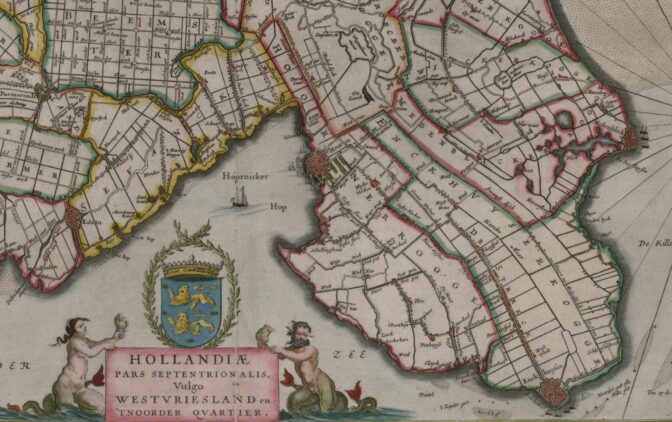When you come across a place of origin in a records, you may not be able to find that town on a modern map. Spellings and names changed. Here are five strategies to find out what place is meant.
1: Check contemporary maps
You can look at a map from the period, like in the world atlas by Blaeu from 1665. This shows you the names the towns had in the 1600s. Many people did not move that far so I start by looking at a map of the area where the record was created that mentioned the town. I widen as necessary.
2: Check a gazetteer
Using gazetteers or geographical dictionaries, especially those published before say 1900, can help you find places. My favorite one is Van der Aa’s Gazetteer, a geographical dictionary from mid 1800s that lists all places in the Netherlands including the smallest hamlets.
3: Check Simon Hart’s Origins Research
Former Amsterdam Archives Simon Hart compiled a list of old place names and their current location. It is available for download at the Amsterdam City Archives: Origins Research (PDF download link). This list of names is based on Amsterdam notarial and marriage banns records and gives the modern place names with the region and country in parenthesis.
4: Search for the old place name in search engines
You can do a search for the old place name in search engines like Google. Sometimes, it will suggest the current spelling. For example, if I search in Google for “Enkhuysen,” it gives me results for “Enkhuizen,” the current spelling. It also gives me the option to search for “Enkhuysen” instead.
5: Wildcard searches in genealogical websites
Many old place names are spelling variations of new place names. By doing wildcard searches in genealogical websites, you can sometimes find the correct place. For example, if you see “Enkhuysen” in a record, a search for “En*hu*” in the Persons index at Archieven.nl will show you hits for “Enkhuizen,” the modern spelling.

Enkhuizen and surrounding area on map of Holland by Willem Blaeu, 1665. Credits: Erfgoed Leiden (public domain)

